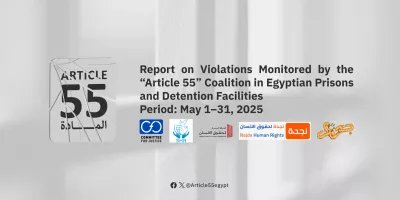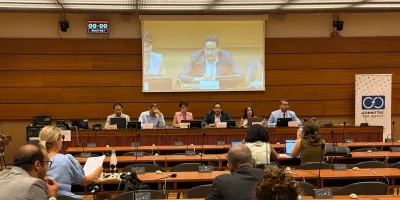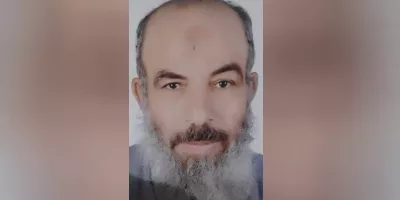The Committee for Justice on Thursday denounced Egypt’s deportation of Italian human rights defender Giorgio Caracciolo, the Deputy Director of International Programmes at the Danish Institute for the Prevention of Torture (DIGNITY).
Caracciolo was due to attend the COP27 climate summit currently being held in Sharm el-Sheikh.
CFJ said the deportation of Caracciolo from Cairo Airport is clear evidence of the systematic crackdown on freedom of expression in Egypt.
The deportation confirms beyond any doubt that Egypt intends to tighten the security grip after the end of COP27.
He was scheduled to meet with human rights defenders during the event and was traveling on a valid visa and accreditation to attend as a representative of a non-governmental organization.
“Out of all the human rights defenders that were allowed in the country these days (just these days) why not me. Is it because the organisation I represent focus on the most intimate tools used by the regime, that is torture and violence?” Caracciolo wrote on Twitter.
“Is it because we said that torture is not only systematic but systemic, meaning the police officer is as responsible as the system of judges, prosecutors, and the highest level of the governing apparatus.”
“Or is it because I am Italian and they worry I might be trying to deliver notification of trial to the four high ranking officers standing trial in Italy for the torture and murder of researcher Giulio Regeni,” he added.
This is not the first breach by the Egyptian security authorities against human rights defenders who attended or were intending to attend the conference. What happened with the Ugandan activist, Nyombi Morris, was another example. He was also subjected to strict security measures after his arrival at Sharm el-Sheikh airport, “shattering his dreams” – according to him – and disappointing him after his happiness at choosing Egypt to host the climate summit, being an African country.
Morris also mentioned that the Egyptian security opened investigations at the airport, not only with him, but with all the activists coming to the summit, and confronted them with questions and lengthy investigations that prompted them to rethink before organizing any event that was planned, as well as what he learned about the Egyptian state’s policy of restricting protests and arresting protesters. The two incidents show that Egypt’s allegations about its high ceiling of freedom of expression are mere propaganda aimed at polishing the image of the regime.
The Committee for Justice announced its solidarity and support for Caracciolo, stressing that freedom of expression and movement are fundamental human rights that the authorities must respect and protect in accordance with the international conventions and treaties that Egypt has signed, including the ICCPR.
CFJ also called on the Egyptian authorities to stop their crackdown and to open the civic space for activists – whether international or local – to participate and express their views on climate policies, as well as to hold accountable those responsible for preventing these activists from exercising their right to freedom of expression and movement.






